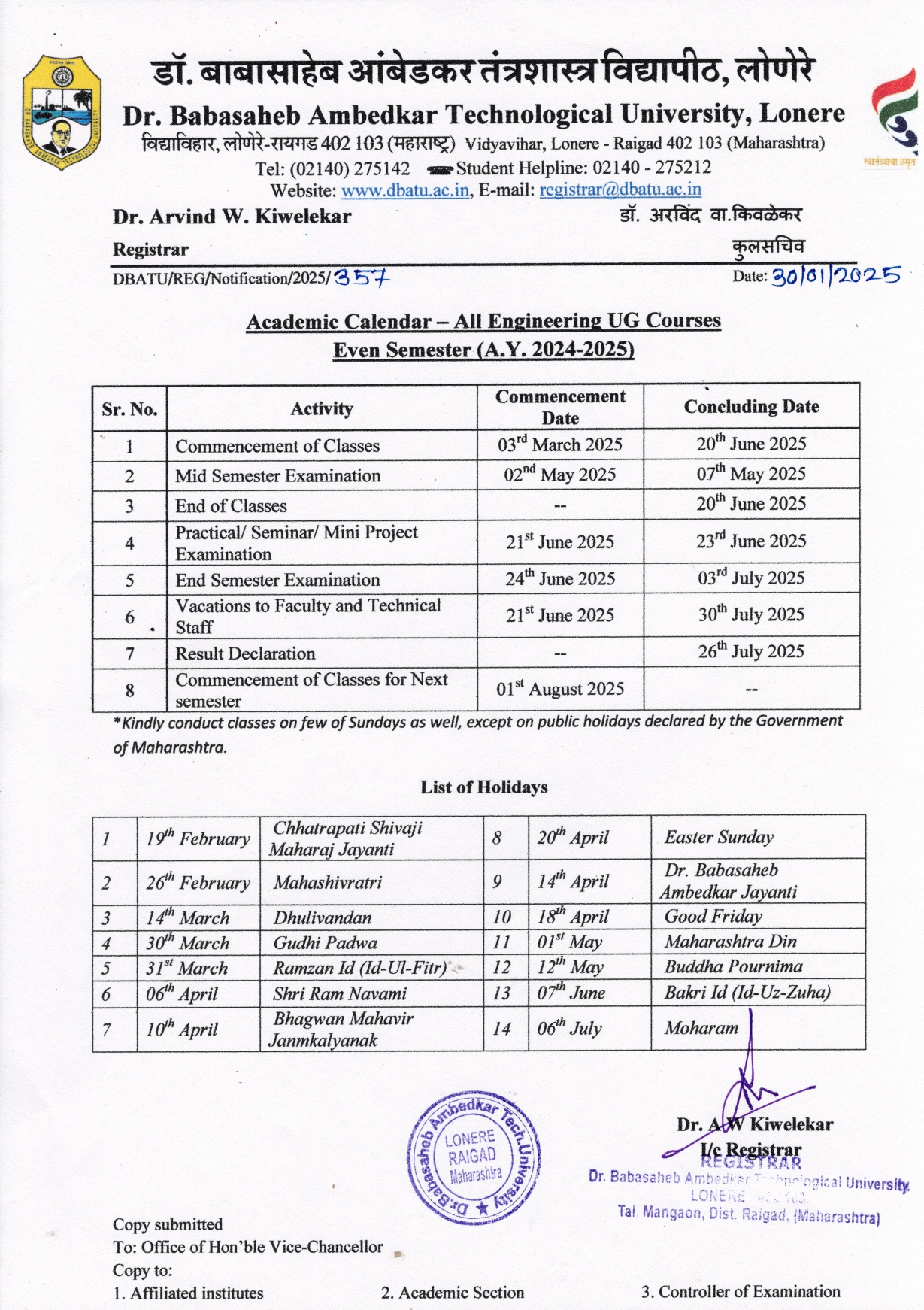Loknete Shamrao Peje Government College of Engineering, Ratnagiri
लोकनेते शामराव नेते शासकीय अभियांत्रिकी महाविद्यालय, रत्नागिरी .
(An institute of Government of Maharashtra)
( Established in 2021)
(Affiliated to Dr. Babasaheb Ambedkar Technological University, Lonere, Dist. Raigad)
DTE Code: 3042 AICTE Permanent ID:1-9442079401
Department of Civil & Infrastructure Engineering
About Department
About the Department of Civil & Infrastructure Engineering Welcome to the Department of Civil & Infrastructure Engineering at Loknete Shamrao Peje Government College of Engineering, Ratnagiri.
The Department of Civil and Infrastructure Engineering was established in the year 2021 with a total sanctioned intake of 60 students for the U.G. Program. The Civil and Infrastructure Engineering Department offers a four-year programme leading to the Bachelor’s Degree in Civil and Infrastructure Engineering (B. Tech.). The department has emphasized on fundamental theory and practice in Civil and Infrastructure Engineering, keeping in view the current and continuously changing scenarios in this discipline.
The department has an excellent infrastructure with well-equipped and modern laboratories in the field of concrete and material testing, Soil Mechanics, Hydraulics, Transportation, Surveying and Construction. The department has established laboratories in
such a way that it provides students with hands-on experience essential for their professional development, and the department has signed MOU with TRIDENT laboratories for hands on practice on advanced equipments. The department also has one modern classroom with smart interactive whiteboard and one large seminar hall with an interactive projector.
The department has excellent industry interaction and provides services like consultancy, design and auditing. Since, the commencement of the program, the department has made sincere efforts in the development of students through training and industrial visits. Beyond academic activities and achievements, the students of the Civil and Infrastructure Engineering
Department have demonstrated skills in various extracurricular domains, including research paper presentations, sports, and cultural activities. They actively participate in activities such as personality development programs, group discussions, debate compitions, quiz compitions,
workshops, tree plantation.
The Department of Civil and Infrastructure Engineering has a total of 07 faculties with 02 Ph.D holders all of them have completed their post-graduation. In addition to teaching and instruction, the faculty is also engaged in active research with an aim to generate innovative
concepts and ideas or apply existing technologies to new applications. Faculty members are committed to service through continuing education programs and research that contributes to their field. The department has several ongoing/completed industrial consultancy work from
various agencies.
Department of civil and Infrastructure engineering provides consultancy
and technical support to governmental/non-government/Private/Public
organizations in the following fields.
HOD's Desk

Message from the HOD,
Welcome to the Department of Civil and Infrastucture Engineering
I hope this message finds you well and that you are settling into the academic year. As your Head of Department, I wanted to reach out and share some thoughts, updates, and encouragement.
Civil and Infrastructure Engineering is a dynamic and essential field. You are embarking on a journey to shape the world around us, from designing sustainable buildings and robust transportation networks to ensuring access to clean water and resilient infrastructure. The skills and knowledge you gain here will be crucial in addressing the challenges and opportunities of the future.
We are committed to providing you with a high-quality education that is both theoretically sound and practically relevant. Our faculty are dedicated experts in their respective fields, and they are here to guide and support you throughout your studies. Don't hesitate to reach out to them for assistance with your coursework, research interests, or career advice.
Remember that your time here is not just about earning a degree; it's about developing into well-rounded engineers who are ready to make a positive impact on society. Embrace the challenges, seize the opportunities, and support each other.
I am confident that you have the potential to achieve great things. I look forward to seeing your progress and celebrating your successes.
Wishing you a productive and rewarding academic period.
Warm regards,
Name of HOD
Head of Department
Department of Civil and Infrastructure Engineering
Loknete Shamrao Peje Government College of Engineering,Ratnagiri
Vision and Mission
Vision-:
To develop engineers who are morally upright in order to assist our nation, and to improve our students' knowledge and proficiency in civil and infrastructure engineering from a global perspective.
Mission-:
1. Preparing the next generation of technocrats to plan,design, build, and maintain civil and Infrastructure engineering projects for public and private sector organizations.
2. Finding sustainable and affordable solutions in a variety of civil and infrastructure engineering fields in order to enhance people's quality of life.
3. To enhance employability skills to meet the changing industrial trends by upgrading knowledge base.
PEO's and PSO's
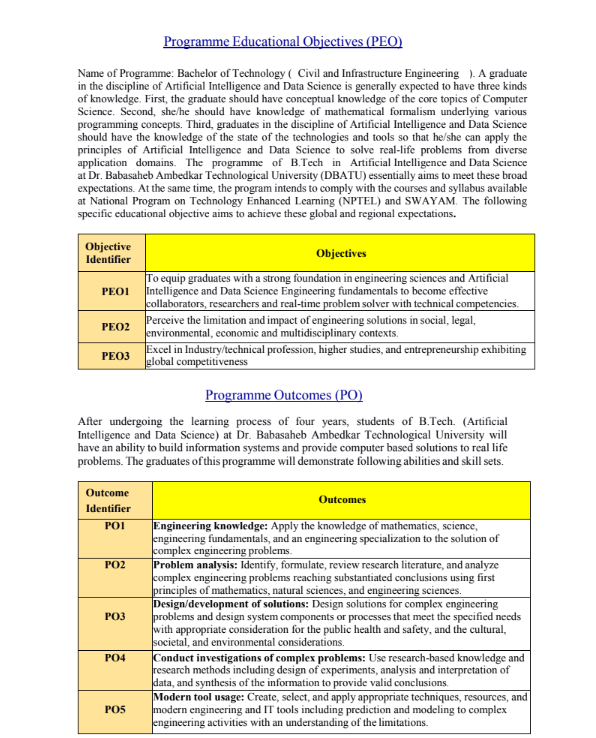
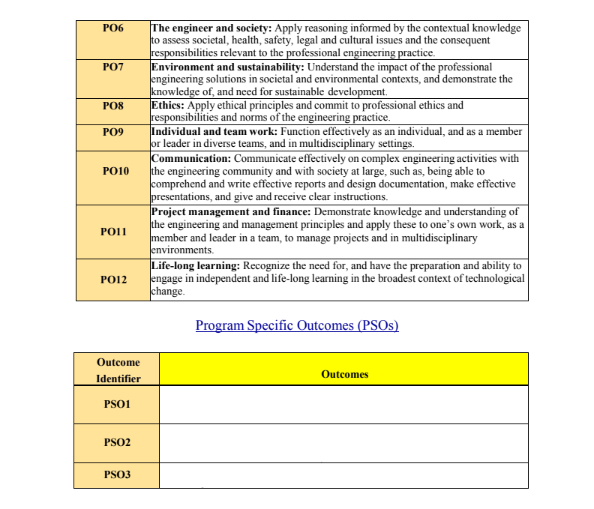
Meet the Faculties
At Loknete Shamrao Peje Government College of Engineering, Ratnagiri (GCOER), the Department of Civil & Infrastructure Engineering is proud to have a dedicated and talented team of faculty members. They are well-qualified, experienced, and passionate about teaching. Our faculty stay updated with the latest advancements in Civil & Infrastructure Engineering. Our teachers are not only highly qualified and experienced but also deeply committed to student learning, ensuring every student gets the guidance and support they need to succeed.
Laboratory Equipments and Practicals-:
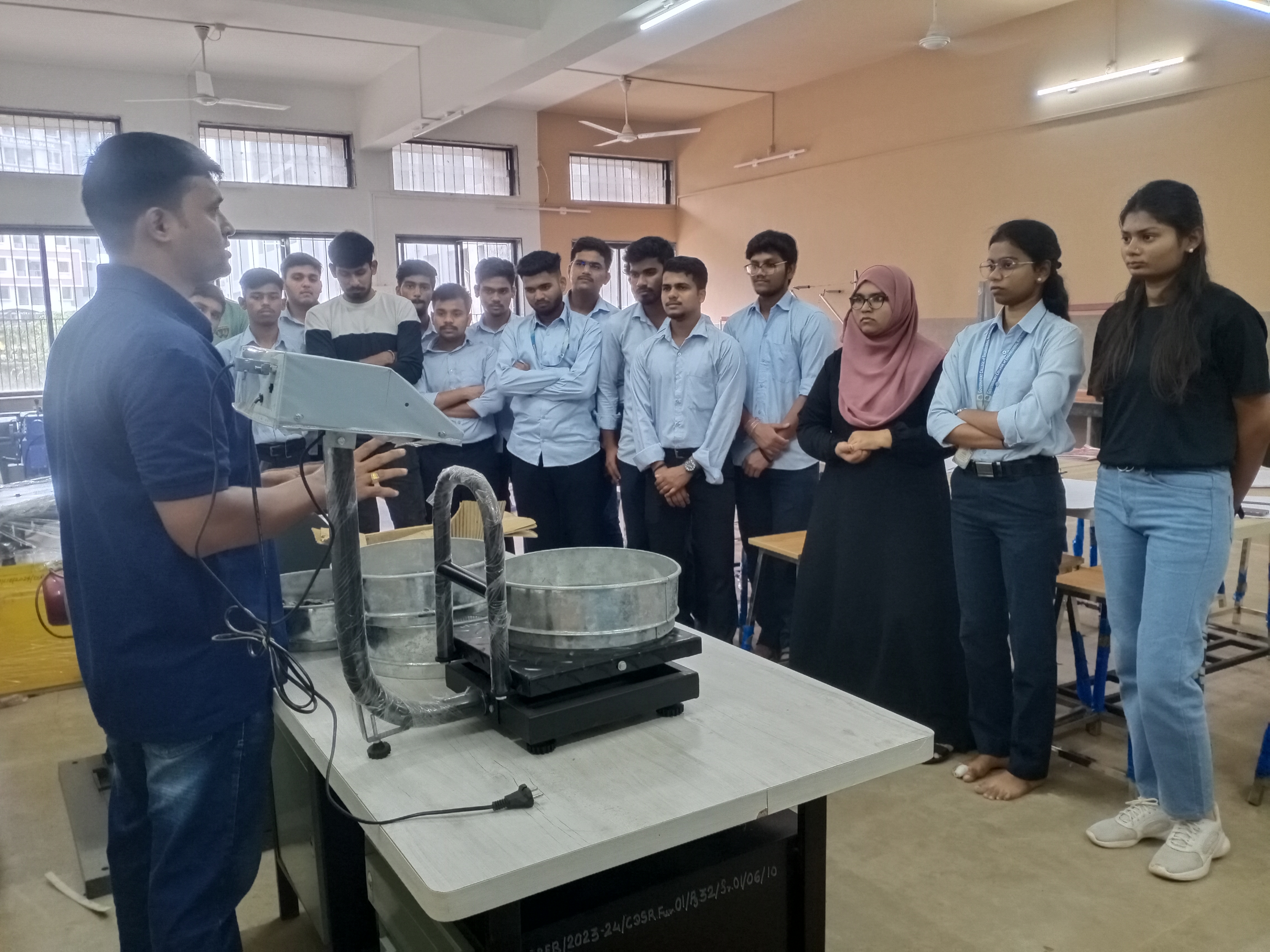
Laboratory Details:-
News and Events
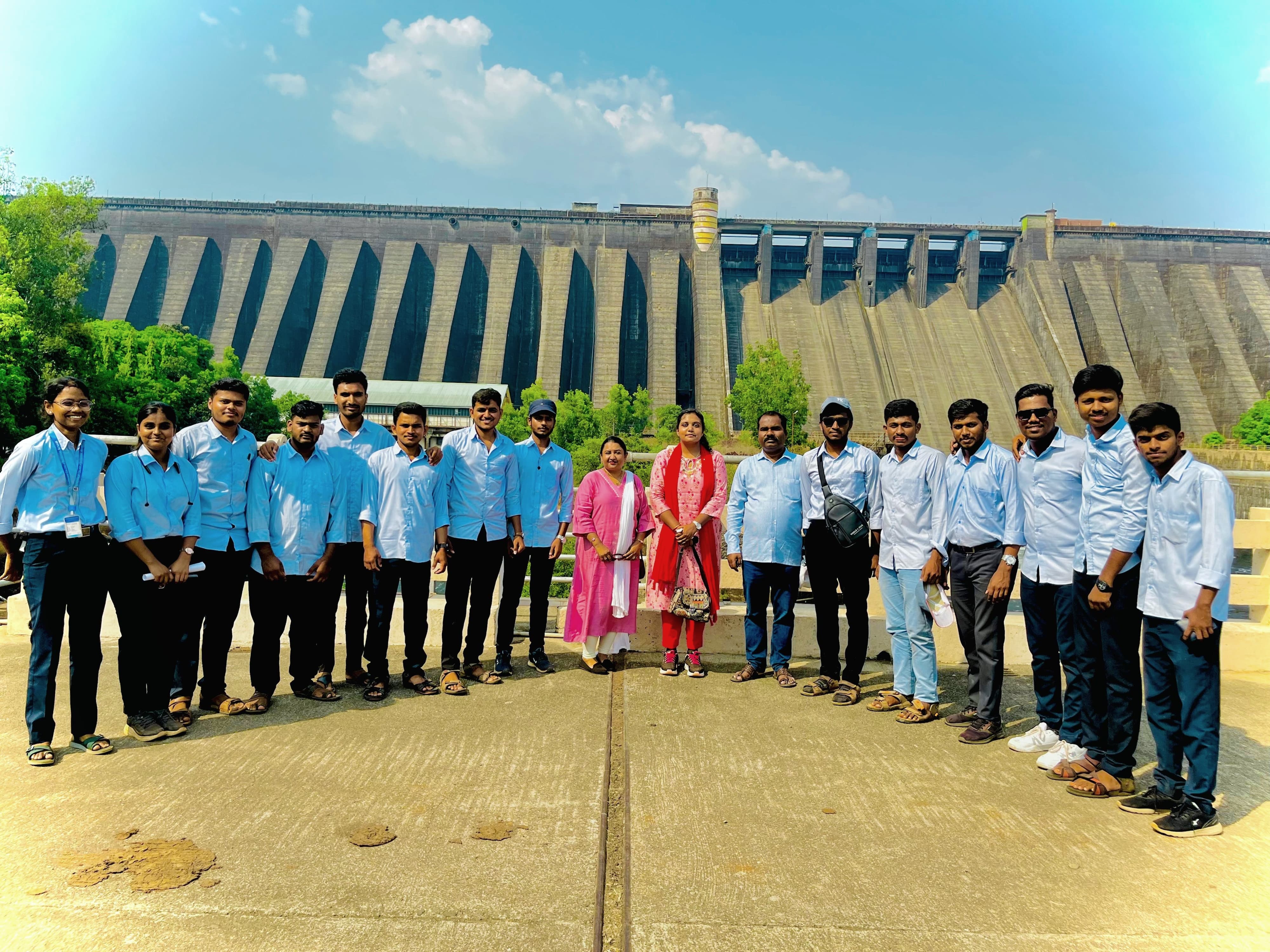
9 April, 2025
Koyana Dam Visit
"Koynanagar Dam" Maharashtra's biggest infrastructure with 1920MW installed capacity. One day visit with Civil and infrastructure and electrical engineering students.
read more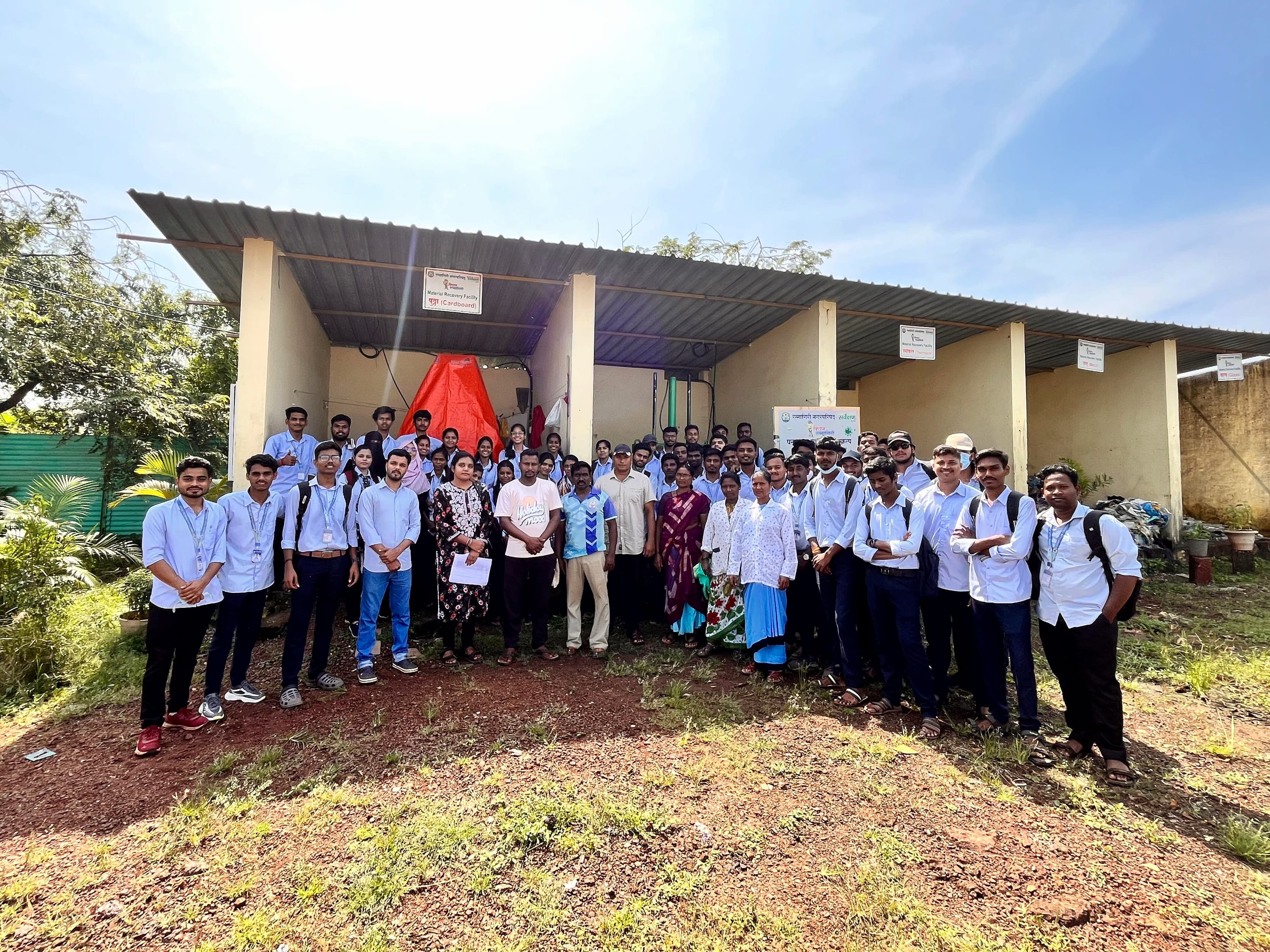
2024-2025
Solid Waste Management
Solid waste management visit at ratnagiri final year BTECH civil and infrastructure engineering sem-7 2024-25
read more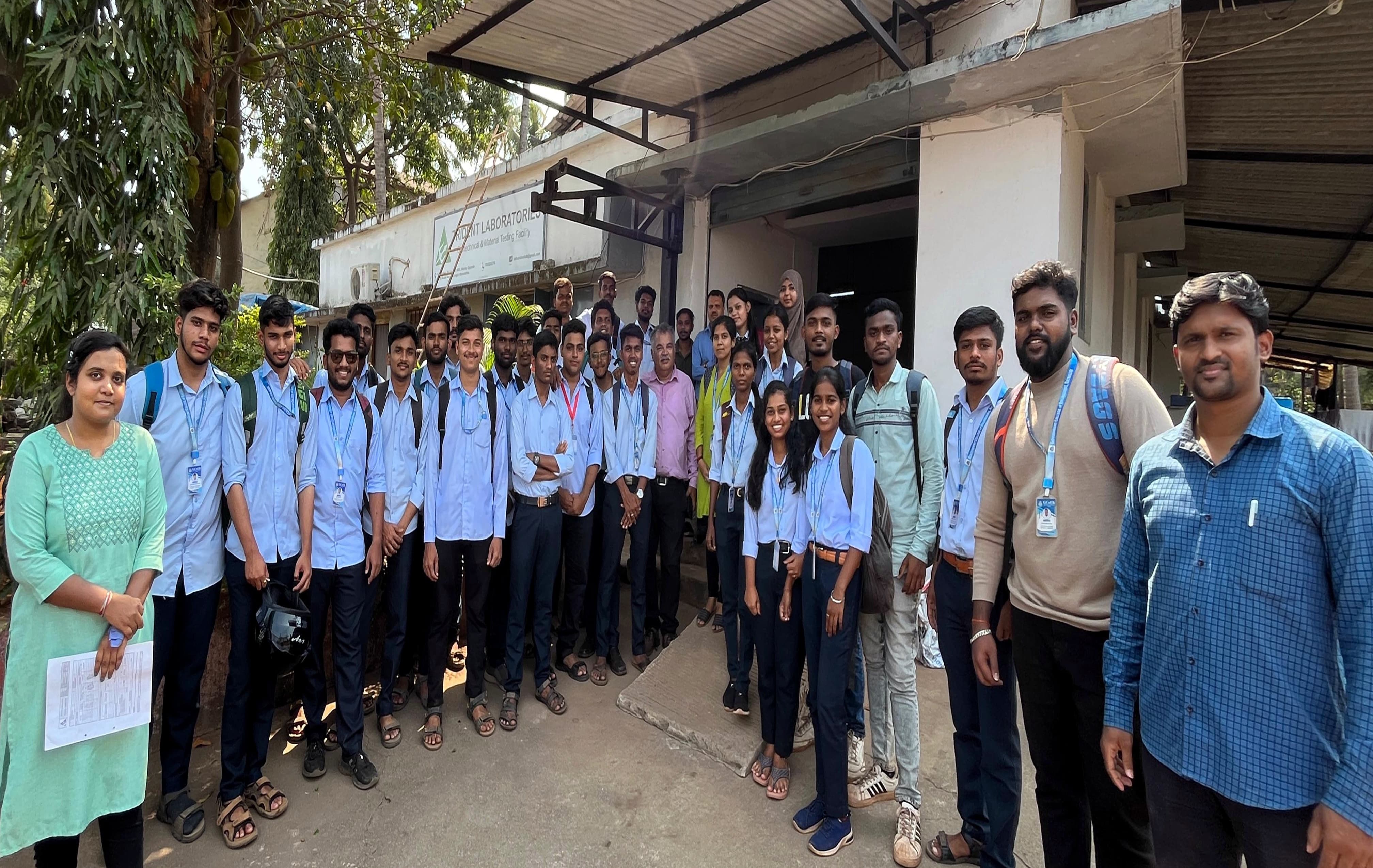
2024-2025
Trident lab mirjole visit
TY BTECH civil and infrastructure engineering sem-6 2023-24
read moreSyllabus
• Second Year:-
Academic Calendar
